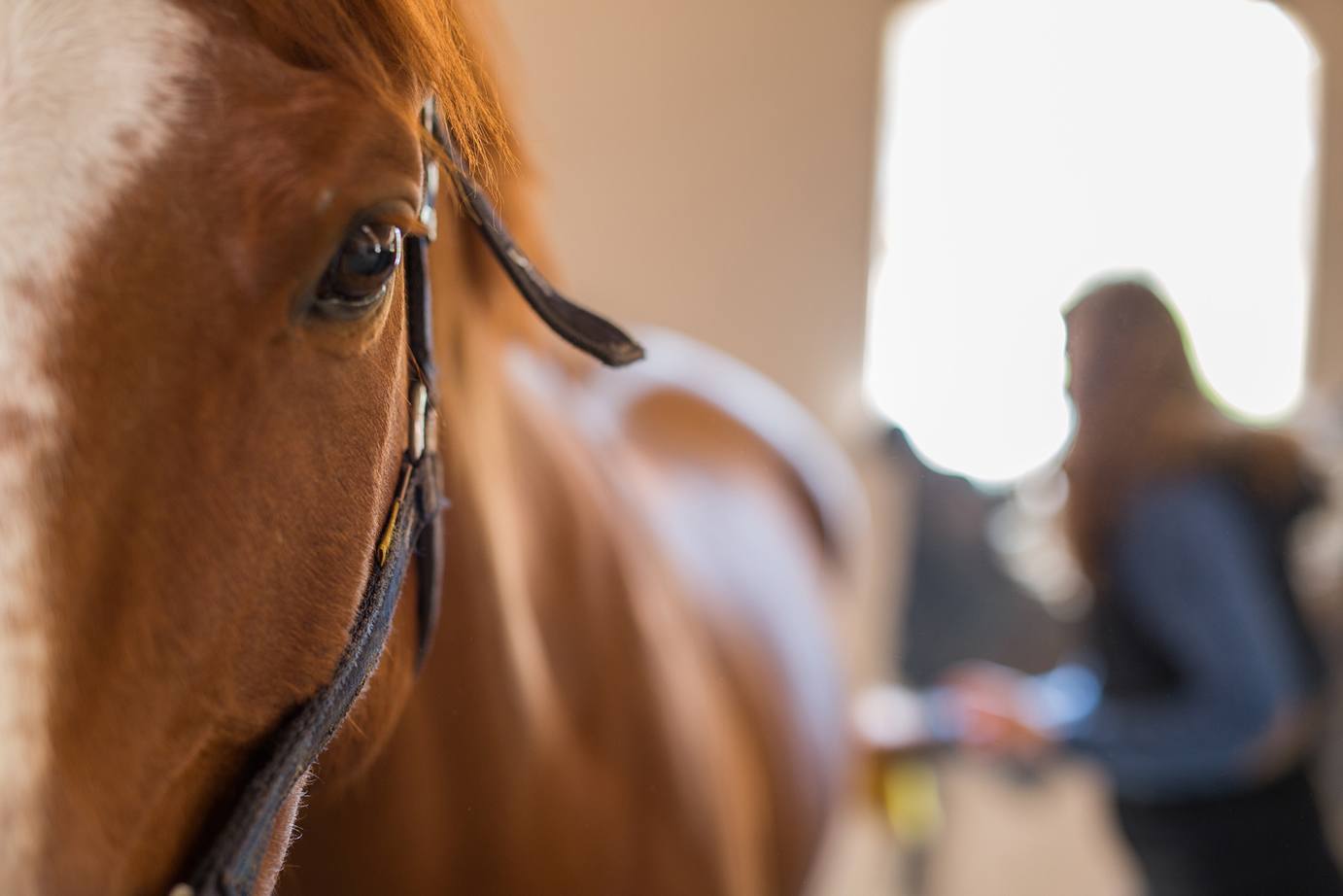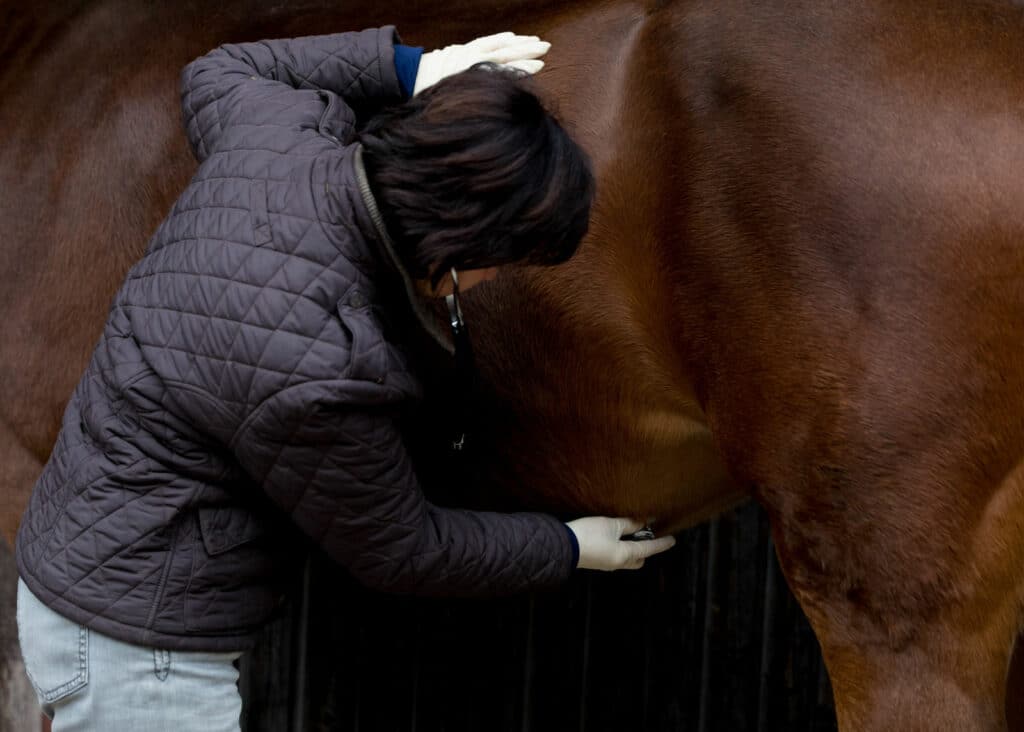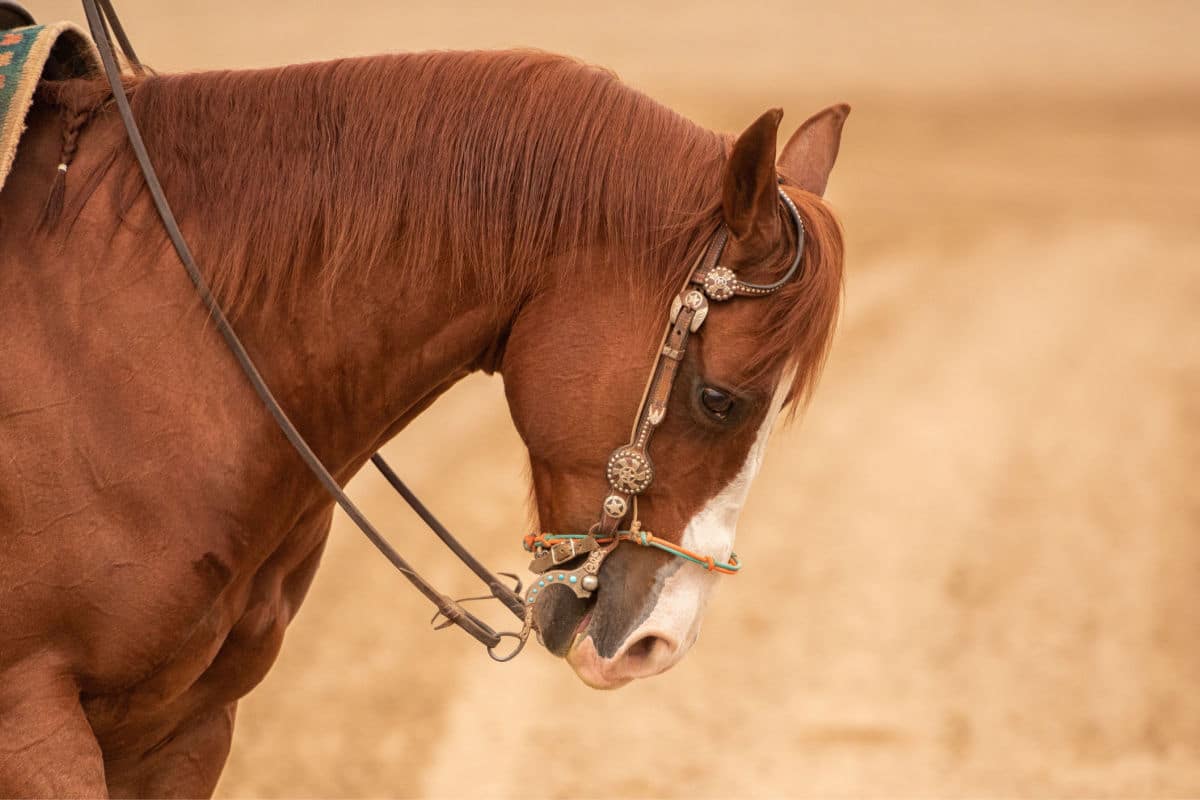Imagine this: you’re working in the barn during the summer when your young nephew dashes into the aisle way. He’s barefoot, so you send him straight back out again — but not before he steps on something sharp. You can’t see a cut or puncture in his foot and he seems fine, so you — and he — both forget about it.
Two days later, his foot is throbbing, inflamed, and oozing pus. He can’t walk on it, so has to be carried to the car en route to the doctor’s office. The doctor assumes at first that he stepped on a rusty nail, but closer inspection reveals a tiny splinter left over from his barn adventure. The doctor removes the splinter, cleans and bandages the wound, and sends her patient home with a strict warning to stay out of the barn if he’s barefoot.
While wearing shoes in the barn is a no-brainer, the barefoot nephew story is an apt metaphor for another, far more serious equine problem: colitis.
The term “colitis” is used to describe inflammation of the lining (mucosa) of the large intestine. This inflammation frequently causes diarrhea and colic in horses, however it is important to realize that the term ‘colitis’ only describes a set of symptoms. Many different agents – both infectious and non-infectious – can cause these symptoms. Diagnosing the cause of the colitis is essential for formulating an appropriate treatment plan.
Or, using the barefoot metaphor, the infected foot is the colitis, and the splinter is the under-lying disease. It was imperative for the doctor to find the cause — a splinter, not a rusty nail — to proceed with treatment, but the management for both is the same: take care of the wound, and stay out of the barn if barefoot!
Defining Colitis in Horses
Colitis is most common in horses between 2 and 10 years of age. It can affect the mucosal lining in any part of the large intestine, including the large colon, the cecum, or the colon and cecum both. It can be a long-lasting condition (chronic), or a short-term affliction (acute) and can be caused by a wide range of causes or events.
In horses, possible causes of colitis can be defined accordingly:
Infectious:
- Bacteria: Salmonella, Clostridium difficile, Clostridium perfringens, Lawsonia intracellularis, Neorickettsia risticii (Potomac Horse Fever)
- Viruses: rotavirus in foals, coronavirus
- Parasite: small strongyles
Noninfectious:
- Antibiotic-associated diarrhea
- Sand irritation of the large bowel
- Dietary imbalances
- Neoplasia (cancer)
- Inflammatory bowel disease
- Plant and drug toxicities
- NSAID toxicosis (Right Dorsal Colitis)
Other possible causes of colitis:
Frustratingly, the underlying cause of colitis is often difficult to pinpoint. However, we do know that lifestyle factors can often predispose a horse to colitis. These factors can include episodes of stress related to competition, travel or management conditions, or antibiotic or anthelmintic treatment (dewormers).
The Effects of Colitis on a Horse’s Health
Whether you’re dealing with an acute or chronic case of colitis, the effects of mucosal inflammation can be severe, and can even lead to death. Some common effects of colitis include:
- Sloughing (or shedding) of the mucosa and submucosa of the large intestine, and/or necrosis (tissue death).
- Capillary dilation and increased permeability of the vascular endothelium (blood vessels). Increased permeability allows protein and fluids to move from the intravascular compartment into the intestinal area – the cause of diarrhea and dehydration.
- Reduced absorption of water, electrolytes, and nutrients, leading to compromised nutrition.
- A mucosa that’s more vulnerable to infiltration by pathogens and toxins.
- Mucosal edema (or fluid retention), focal hemorrhage and tissue death.
Clinical Signs of Colitis in Horses
Clearly, colitis isn’t something to mess around with. Early identification is key, as colitis can lead to rapid debilitation and death. The symptoms and severity of the case will depend on the horse’s overall wellbeing, as well as the underlying cause. While a successful treatment plan is often dependent on diagnosing the underlying cause, you can also work backward, as the doctor did in our nephew example. She first treated the inflammation in the foot, then found its root cause (the splinter).
Here are some common signs of colitis in horses:
- Diarrhea, often accompanied by a foul smell or blood in the diarrhea. (Traces of hemoglobin and albumin, essential proteins in the blood, present in manure can indicate injury to the hindgut.)
- Colic
- Reduced appetite
- Ventral edema (swelling of the underside of the abdomen, and/or lower legs)
- Lethargy
These common signs of colitis can lead to increasingly bad reactions. Severe diarrhea can quickly lead to dehydration, abnormally low levels of protein in the blood, hypovolemic shock and edema of the large intestine. In some cases, horses may not development diarrhea, but may instead present with colic, fever, weight loss and/or ill thrift.
It is crucial to identify the cause of the colitis as soon as possible, and to start appropriate treatment, as secondary complications can arise. These complications may include kidney (renal) failure, bacterial or fungal super-infections, destruction of the intestinal mucosa, and endotoxemia (bacterial toxins in the blood stream). This may lead to further complications such as shock (circulatory ‘shut-down’), laminitis, blood clotting disorders and death.
How to Diagnose and Treat Colitis
As mentioned above, colitis can be difficult to diagnose. Modern diagnostic techniques have helped increase the number of cases that are properly identified. If you suspect colitis, work with your vet to request the following:
- A thorough history and complete physical exam
- Blood work
- Fecal sample analysis to test for:
- the presence of albumin, using a SUCCEED Equine Fecal Blood Test;
- the presence of infectious agents;
- the presence of sand;
- the presence of worms, or worm eggs.
- Abdominocentesis (belly tap – collecting the fluid that bathes the intestines)
- Rectal biopsy
- Xylose absorption test
- Intestinal biopsy
Treatment options for colitis:
The cause of colitis will influence the treatment and determines whether the approach will include intensive therapy at an equine hospital, or long-term nutritional therapy. However, the goals for both are essentially the same:
- To correct fluid and electrolyte balance
- To balance blood proteins
- To repair mucosal tissue
- To control inflammation
- To ensure appropriate nutrition
Because the underlying causes of colitis can vary so widely (infectious/non-infectious, acute/chronic), your vet’s recommendations may range from fluid therapy to anti-inflammatory drugs or antimicrobial treatment. Take care to follow appropriate isolation procedures if your horse has infectious colitis, as the contagious bacteria, or virus, can transfer from horse to horse, and even sometimes from horse to human (i.e. Salmonella).
How to Avoid and Help Prevent Colitis
As mentioned above, your horse may be more susceptible to some underlying causes of colitis if its health is compromised by undue stress associated with travel, competition, high performance demands or a diet high in energy-dense simple carbs that lacks sufficient fiber. Simple, non-structural carbs can quickly overwhelm the small intestine, and will often pass through the horse’s digestive system too quickly, creating unbalance in the hindgut and causing the horse’s gut to become overly acidic, a state that disrupts the mucosal barrier and leaves it vulnerable to pathogenic and endotoxin infiltration. Once this process has begun, colitis quickly follows, and may be accompanied by a range of disorders ranging from colic and diarrhea to colonic ulcers and laminitis.
For this reason, treatment and prevention of colitis can be influenced by appropriate management and feeding practices, such as:
- Increasing forage intake by providing free-choice hay
- Increasing turnout time
- Limiting access to grass that’s high in fructans
- Limiting starch intake
- Feeding oats preferentially over other grains
- Avoiding dehydration
- Avoiding sudden feed changes
- Feeding complex carbohydrates such as grass, hay, and beet pulp, rather than feeds high in simple carbohydrates
- Ensuring barley, maize, or wheat products are suitably processed (cooked, extruded, micronized, steam-flaked or popped)
- Vaccinating for Potomac Horse Fever
- Providing additional hindgi tract health support
Colitis can be a very serious condition for horses. But by taking the correct steps to control the factors you can — and to be aware of the factors you can’t — be one step ahead of it in your diagnosis and treatment.




